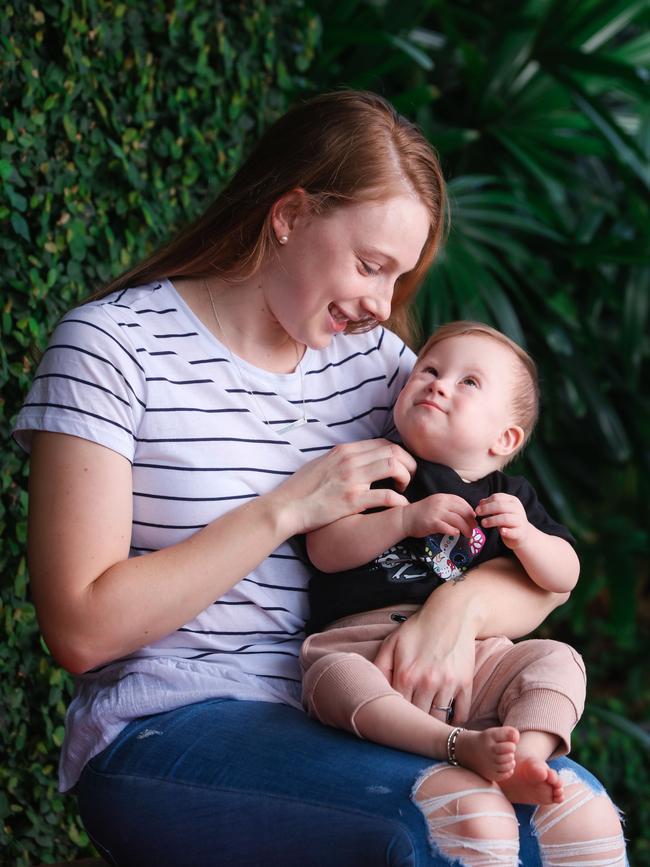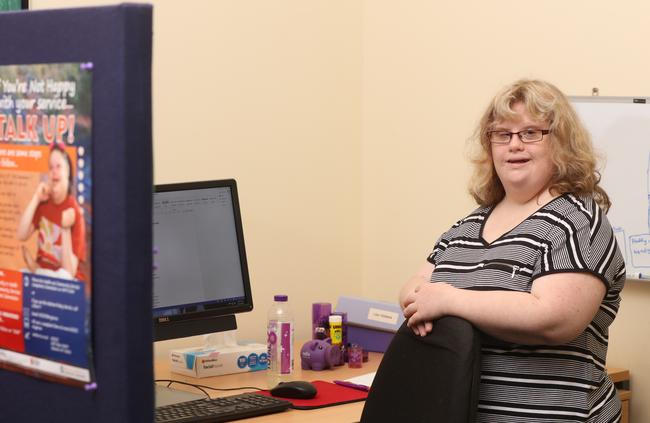FOUR decades ago, a group of mothers came together to support their children with a disability. Now some are saying the Territory organisation is better than those down south. RAPHAELLA SAROUKOS writes
She was struggling to raise her son who had Down syndrome. She needed advice and assistance and made a simple request to a nurse.
“I just need some help,” she said.
“Can you help me find another mum?”
The nurse found four women whose children had Down syndrome.
They began regularly meeting, swapping stories and advice. They looked at the lack of health and education facilities for their children and began advocating for the disability.
They pushed for mainstream schooling and respite for parents.
These women talked to ministers and other authorities about how the facilities and quality of life could be improved for people with the disability.
Then, in 1979, they registered the Down Syndrome Association of the Northern Territory (DSANT) and this week the organisation celebrated its 40th anniversary.
DSANT executive officer Rachel Kroes understands the hardships families experience.
She joined 23 years ago, a year after her daughter Molly was born.
Mrs Kroes says Darwin’s facilities are continuing to evolve alongside society’s perception of the disability.
“Forty years ago the needs for people with Down syndrome were still finding their way into education, community, acceptance and inclusion,” she says.
“We think about what has changed for people in the last 40 years. In the mid ’80s the life expectancy for people with Down syndrome was around about 35-40, now the life expectancy is around 60-65.
“This is because health has improved and education has improved and parent support. Those are the three things you need.”
DSANT has developed many programs dedicated to the enhancement of skills social and education skills, including their new program Reading to Speak.
“When a child with Down syndrome learns to read then they learn to speak,” she says.
“They’re such good visual learners and a really good way of encouraging speech development is through learning to read.
“It’s really important to us at that people with Down syndrome have a voice and can say what they want and make their choices and express themselves.”
Another area Mrs Kroes has seen change is employment.
“Employers are opening their thinking about the benefits of employing somebody with Down syndrome,” she says.
“They will quickly see that there are there are benefits on both ways. You’re giving somebody a job but you’re also, in your workplace, working with somebody who can teach you an awful lot about life and courage.
“That small inclusion says ‘Yes somebody can be in our workplace, there is a role for them to play here, we recognise and value that’, you’re balancing their life out then.”
■ ■ ■
LISA Tiernan embraces her disability and takes on every obstacle with determination.
The 30-year-old travels, has a busy social life and enjoys tenpin bowling.
She’s worked for the Health and Community Services Complaints Commission (HCSCC) since 2015 and is a valuable member of the team.
Starting with basic tasks, Ms Tiernan has assumed significant responsibility, from handling confidential information to processing invoices, entering new data and conducting record destruction.
HCSCC commissioner Stephen Dunham says Ms Tiernan’s vivacity and eagerness to learn are just some of her incredible qualities.
“Lisa is a very joyous person, very happy and that has an impact on all of us,” he says.
“She’s a valued member of the team and we always tell her so she knows that.”
In return Ms Tiernan has taught her colleagues about how to effectively converse with people with disabilities and not to underestimate a person’s skills.
To people with Down syndrome who are intimidated by work, Ms Tiernan has a simple message.
“Don’t get scared,” she says.

AT 22-weeks pregnant Bianca Klingner began publicly telling people her unborn son, Oliver, had Down syndrome.
A mother and friend said to her “Oh, I’m so sorry,”.
“I questioned it, I said ‘Why are you sorry?’, it’s still my baby,” she says.
“I said, ‘I’m still looking forward to caring for him just as you would your child’.”
A common misconception is a family’s quality of life declines when raising a child with a disability.
Ms Klingner says this is far from the truth.
“Our quality of life is amazing,” she says.
“We’re busy. We do lots more than a typical parent may but we still enjoy all of the big milestones that everyone does. We still go on holidays and I can still work.
“We still go on coffee dates with friends. None of that has changed, our life hasn’t changed just because he has Down syndrome. If anything, it has made our lives better, it’s brought so many new people to us and it’s changed how I look at a lot of things in life.”
One-year-old Oliver was born in Melbourne where his first few months were traumatic.
He was born premature and with a heart defect.
At 11-weeks-old doctors performed open heart surgery to repair the ventricle septal defect, a hole in the organ.
Ms Klingner praises the wealth of medical knowledge doctors have on the disability but is disappointed by the lack of resources available to families.
“In my pregnancy, a lot of information on Down syndrome was lacking and not really provided to me through medical professionals,” she says.
“I had to do a lot of my own research around it and be connected with (Melbourne) organisations like DSANT through friends who had mentioned them. You would think you might get an information or resources, like ‘these are the people you should be seeing’ but I never got any resources for it.”
About two months later Ms Klingner and Oliver returned to Darwin where she was inundated with information.
“We were put in touch with occupational therapists, physio and all of those early intervention type facilities,” she says.
At the beginning of her pregnancy, Ms Klingner admits she was nervous.
“I was scared when I found out, I just instantly thought the worst,” she says.
“Now he’s here and I’ve lived his life it’s amazing. We love our life and I’m pretty lucky to have him. Oliver has definitely enhanced my life.”
Oliver is a typical baby. He’s curious, fearless and loves people.
“He’s really quite cheeky,” Ms Klingner says.
“He has a funny personality and can be really stubborn too at times. He’s a very social person, he loves people and kids. We go anywhere where there’s a bunch of kids and he’s just constantly in their face and wants to play with them and climb on them.”
She says her adventures with Oliver have taught her to be more accepting but while society has already made leaps and bounds, she believes there’s still a long way to go.
“I learned to be accepting of others and see other people for who they are and not because they’re different,” she says.
“If in our society people could look at Down syndrome as something different and special and amazing it wouldn’t be so scary for new parents.
“Unfortunately it’s perceived as something that’s scary and life changing in a bad way. When new parents do get a diagnosis, it’s scary for them. It would be amazing if one day it‘s perceived differently in our society, that people aren’t scared of it.”


Add your comment to this story
To join the conversation, please log in. Don't have an account? Register
Join the conversation, you are commenting as Logout
Sonny’s search: What’s bringing this SANFL legend to Alice Springs
For more than 50 years, a SANFL legend – and stolen generation survivor – has been returning to Alice Springs on a deeply personal search. Now, he’s had a breakthrough.
‘It’s a coup’: ‘Terminated’ Alice Springs principal’s explosive allegations
The former principal of troubled Alice Springs school is alleging he was sacked after standing his ground over a proposal which is going to be ‘a sh-t show’.